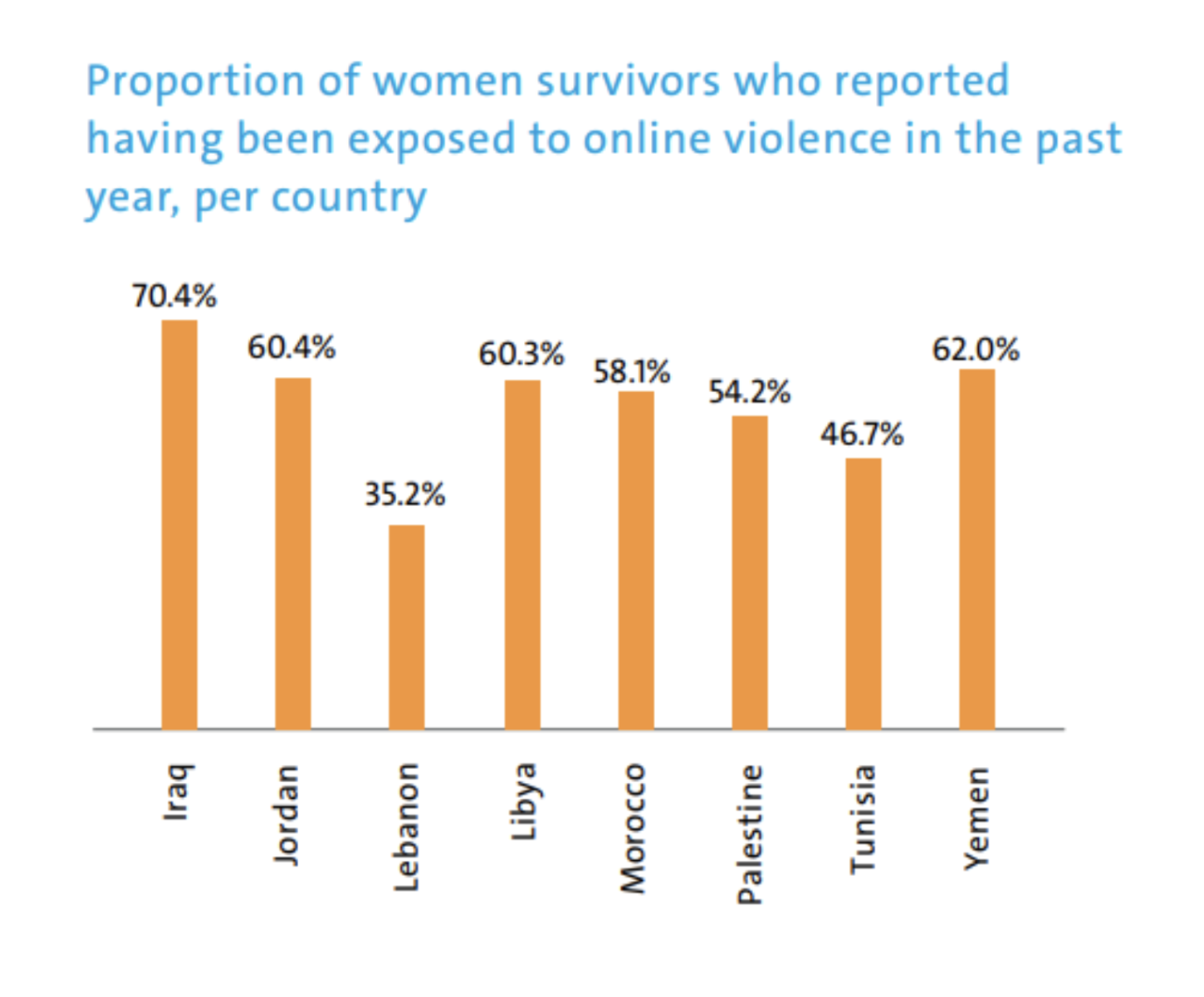With the growing reach of information and communication technologies (ICTs), digital platforms have been used as vehicles to perpetuate violence against women and girls (VAWG) in virtual spaces. ICT-facilitated VAWG is emerging as a global problem with implications for societies, and economies around the world.
During an earlier project conducted by UN Women and RIWI relating to COVID-19 and domestic violence in the MENA region, survey respondents documented experiencing high levels of online violence. In order to better understand instances of ICT-facilitated violence in the region, the consequences of it, and public attitudes towards it, UN Women commissioned RIWI to conduct an online survey on women and girls using the internet across the region. The survey ran in 8 MENA countries (Iraq, Lebanon, Jordan, Libya, Morocco, Tunisia, Palestine, and Yemen) from July 26 to September 2 in 2021.
UN Women analyzed trends of ICT-facilitated violence in the region, including the perceived surge as a consequence of COVID-19. In this project, they explored knowledge and attitudes towards various forms of online violence, identified reporting behaviors and potential barriers to accessing services for women and girls subject to online violence, and generated policy recommendations. A total of 11,497 respondents participated in the survey, including 4,187 women (36.4%). The questionnaire included 22 questions for all respondents, and up to 38 questions depending on skip logic and country. It was administered in Arabic, English and French as per the respondents’ preference.

Key findings in this study revealed that:
- The proportion of women who have reported exposure to online violence was higher during the pandemic, as 6 out of 10 women respondents to the web survey reported having been exposed to online violence in the past year.
- For almost half of the women who experienced online violence this year, it was the only time they had experienced online violence.
- 44% of women who have experienced online violence, experienced it more than once.
- 36% of women who experienced online violence were told to ignore it, 23% were blamed for the incident, and 21% were told to delete social media. Only 20% reported that their families were supportive of them, and 32% report that their friends were supportive.
- 22% of women and girls who experienced online violence deleted or deactivated their accounts.
- Among women who believe they know why they were subjected to online violence, the largest share (23%) believe it was because of their physical appearance. This is followed by the fact that they’re a feminist (16%), again indicating a gendered aspect of online attacks.
- The majority of people who experience online violence, do not report the incident. Women are less likely than men to report instances of online violence. Just 31% of women reported their experience of online violence, compared to 42% of men.
